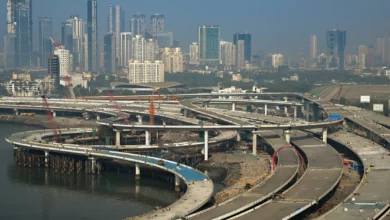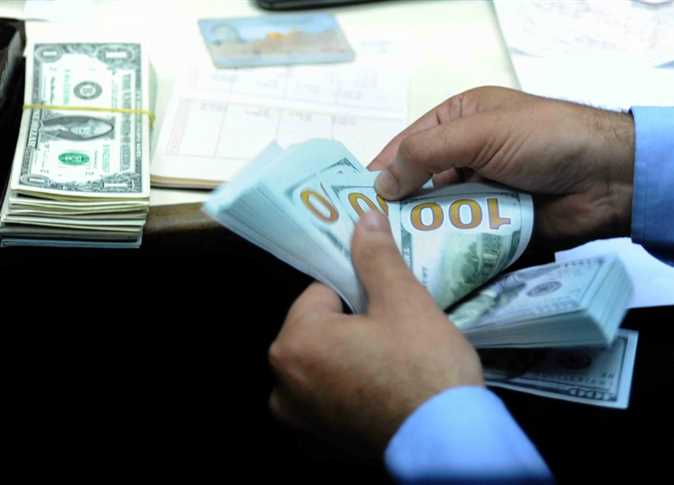(1)
The current policies have wasted LE130 billion until now, in pouring reinforced concrete everywhere, and when the fatal effects of this defect started to show on the national economy, as had been expected by everyone who has some insight and a sound mind, they started telling us with enviable confidence about «our poverty». They then started transfering this notion to the people through the paid media mouthpieces, those with pockets stiffened with thousands of pounds, and others eager for government positions, and orphans of the Mubarak regime who offered their services in fawning and hypocrisy to the new authority.
But when we say to this power «Education First!» it mocks us, saying that we do not need to spend on education now. And this alone is enough to declare a final divorce between any nationalists, conscious and loyal to his country, and this power to which applies the proverb in the case of education, that says "a man can do no more than he can," and definitely, can realize no more than he can.
A few months ago I wrote, asking: Who devises the economic plans of the President? I wondered, was he self-sufficient, and in no need of asking anyone else for help? and if he did ask, is there a circle in the business community that he turns to? And I pointed to an incident as an example: I have heard of someone who sat down with several others one day to put a program for the candidate Abdel Fattah al-Sisi in record time to accomplish a specific task.
This group thought they had done something good for the country, but eventually all that they had written was thrown into the trash, days after guffaws at them by a businessman who entered their meeting and raised in his hand what they had written, and drowned in laughter. He then got out of his briefcase a project entitled «Mountain Galala Project» and told them: this is the program. On that day, they mocked him and told him: "Sisi can’t accept what you suggest!" But he nodded, saying: "Tomorrow, we shall see!"
Only days later, they were disqualified and the businessman was embraced, and now his project is in the works, despite the fact that Egypt does not need him now as it does not need the New Administrative Capital; just as it was not in urgent need for digging a ditch for the Suez Canal in one year, which doubled the cost, including buying two giant diggers worth 1.5 billion Euros and now proven obsolete, as the country is giving them up and they probably will soon be sold as scrap.
Egypt is also not in need of spending all this money to reclaim 1.5 million fedans in the western desert, as the underground water is not sufficient for this, which recalls the failed Toshka project; nor was it in need for paving all these roads, however important it may be for the future. It was necessary to use all this money of the New Suez Canal, grants and loans from Gulf countries, and all that was paid by the armed forces, to launch productive projects to stimulate the national economy and strengthen it. From the revenues we could've then launched these high-cost projects later.
The economy has been managed upside down, and the regime simply turns a deaf ear to any other views, and claims to know everything. The President says that God has created him «a doctor and philosopher», as he stated in a Sharm el-Sheikh conference that he «knows the problems of Egypt as well as he can know who is sitting in front of him, and sees its solutions as he sees him».
The result was all this malaise, which led to the days of the collapse of the pound against the dollar; rising prices; the aggravation of poverty; and the inability of the State to save the situation, leading to the president himself feeling frustrated. This is when the talk of the «semi-state» started, and the «we are very poor» discourse asking for austerity from the people of Egypt.
Then came the increases in the size of the debt, while the authority continued the purchase of new armored vehicles for the parliamentary speaker, despite the availability of this type of cars already; buying newspapers and satellite channels and launching other new channels; and the continuation of showy and celebratory policies which cost the country's treasury a great deal.
When the diggers completed the ditch of the Suez Canal, and despite the warning against the rush to create it, as the international reports and studies said that there will be contraction in international trade for at least the five years to come, the President said: "It's the first step, of one thousand steps ahead."
I wrote that day, saying: "Let the coming nine hundred and ninety-nine steps be for education, and when we do this perfectly, we will walk one million step, not just one thousand."
However, the clock is ticking, and understanding the importance of education is absent from the awareness of the regime and its perception. It is clearly puzzled and unable to answer questions such as: how do we drain the sources of terrorism? How do we increase production? How do we empower young people? How do we strengthen the sense of national unity? How do we enliven our social ladder? Without understanding that the answer to all of these fundamental questions begin with a single word: education.
The biggest conspiracy against Egypt is the combination of failed policies, narrow-mindedness, "bulldozing" politics, narrowing the public domain, and the shabby and outdated perceptions in the fight against terrorism. All of this is actually created by the current regime, not in the intelligence labs in the West.
(2)
During days of Mubarak's rule I wrote time and time and again, saying: your strong keeness to empty the political scene from any alternative to you, through the use of security and media services in distortion and fragmentation to discredit the people's confidence in themselves will lead to one thing: you will be the first to pay the price for this. When people revolt against you and you find nobody to negotiate with, there will be chaos. And this is exactly what happened.
Now this formula is being repeated strictly, "bulldozing" the political life, through distorting the character of anyone who might even in wishful thinking hint that he intends to run for the presidency; hitting the political parties from the inside to cripple them from making policies or provide alternative characters; gaining complete control over the media after the control over the parliament; imprisoning some youth at the civil forefront of the revolution; promoting a culture of fear; placing civil society under siege; questioning the ability of the civilians in administration; and the ability of people to change.
The formula is repeated, and the regime knows, but it is not concerned with its serious consequences, as the important thing for it is to extend the life of its survival in power at any cost and under any pretext, while Egyptians are paying the price.
(3)
I am pleased that several newspapers and websites published this news: "The famous British magazine The Economist said that Ammar Ali Hassan, an Egyptian novelist, said that the United States is 'No longer the land of dreams' for many under the Donald Trump administration. The magazine in its last issue said that Trump's executive order of January 27th—alleged to protect “the nation from foreign terrorist entry into the United States”—has been widely condemned by writers, demanding the US Administration to cede it.
The New York Times also reported Ammar saying "It gives the impression that America is no longer the country it used to be. It is no longer open to skilled people from across the world. It is no longer the land of dreams." The German-speaking newspaper St. Galler Tagblatt and the Cuban Prensa Latina also reported Ammar's statements, pointing to the state of fear from Trump's policies that prevails among Arabs and Muslims. The news ends there, but I have remarks on it and here they are:
Unless my statement was in line with the perspective of a broad sector in the West who see that Trump is a serious risk, it would never have seen coverage of this wide scale and attention. In an earlier period, myself and others lost our voice in vain, warning the West against embracing extremist organizations; employing terrorism in serving their interests; and criticizing despotism and corruption in our country. Our voices were lost in the wilderness, because the West was not estimating accurately the threat of terrorism as long as it hadn't burnt its fingers yet, and it was communicating with the dictators and corrupt leaders in our country, because they were serving its interests.
(4)
Historians may say with confidence and reassurance that the current parliament is the worst in all of Egypt's history; it is enough to compare its speaker to his predecessors, in everything: speech, demeanor; behavior; prestige; keeping up with the president and not just flattering him; preoccupation with the interests of the people; in short, in the image of Egypt he projects to the world. And for the overwhelming majority of MPs, speaking honestly about their level of their performance.
(5)
It is important that we disagree in politics and in ideas, because this enriches our lives and protects our rights; but it is a must to unite in the face of terrorists, who come for our country in earnest. This is indeed the strongest weapon in the face of their hellish goals, and their diabolical plans, so that the Egyptian people may at last overtake them in a decisive, hard-earned victory.




